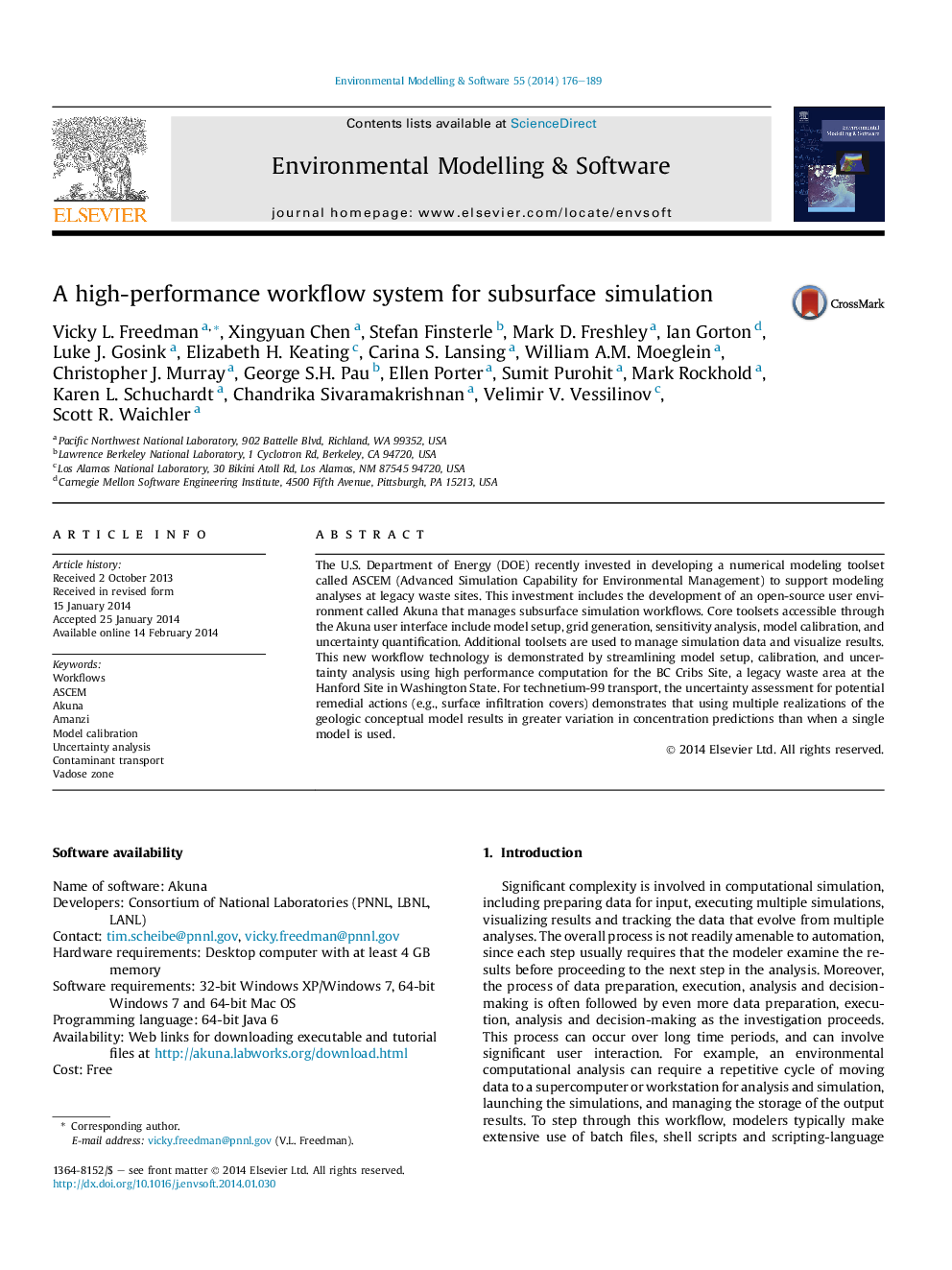| Article ID | Journal | Published Year | Pages | File Type |
|---|---|---|---|---|
| 6963901 | Environmental Modelling & Software | 2014 | 14 Pages |
Abstract
The U.S. Department of Energy (DOE) recently invested in developing a numerical modeling toolset called ASCEM (Advanced Simulation Capability for Environmental Management) to support modeling analyses at legacy waste sites. This investment includes the development of an open-source user environment called Akuna that manages subsurface simulation workflows. Core toolsets accessible through the Akuna user interface include model setup, grid generation, sensitivity analysis, model calibration, and uncertainty quantification. Additional toolsets are used to manage simulation data and visualize results. This new workflow technology is demonstrated by streamlining model setup, calibration, and uncertainty analysis using high performance computation for the BC Cribs Site, a legacy waste area at the Hanford Site in Washington State. For technetium-99 transport, the uncertainty assessment for potential remedial actions (e.g., surface infiltration covers) demonstrates that using multiple realizations of the geologic conceptual model results in greater variation in concentration predictions than when a single model is used.
Related Topics
Physical Sciences and Engineering
Computer Science
Software
Authors
Vicky L. Freedman, Xingyuan Chen, Stefan Finsterle, Mark D. Freshley, Ian Gorton, Luke J. Gosink, Elizabeth H. Keating, Carina S. Lansing, William A.M. Moeglein, Christopher J. Murray, George S.H. Pau, Ellen Porter, Sumit Purohit, Mark Rockhold,
